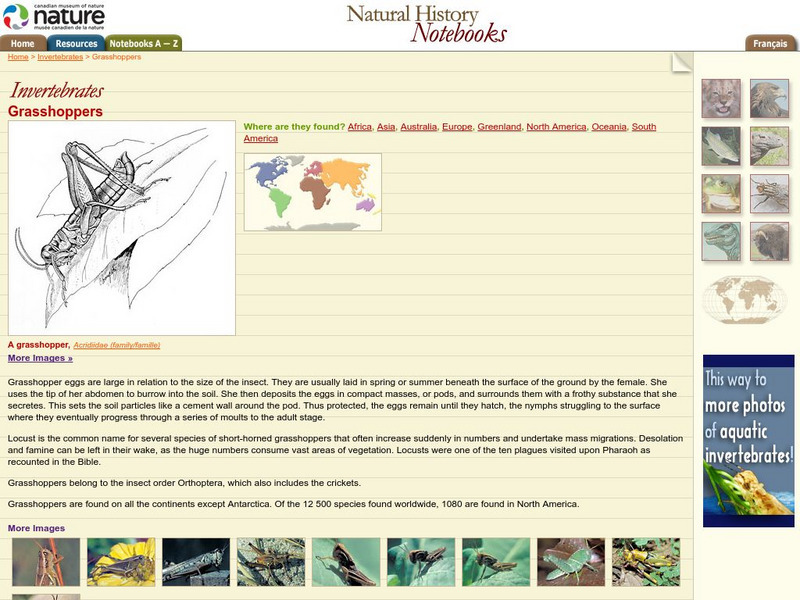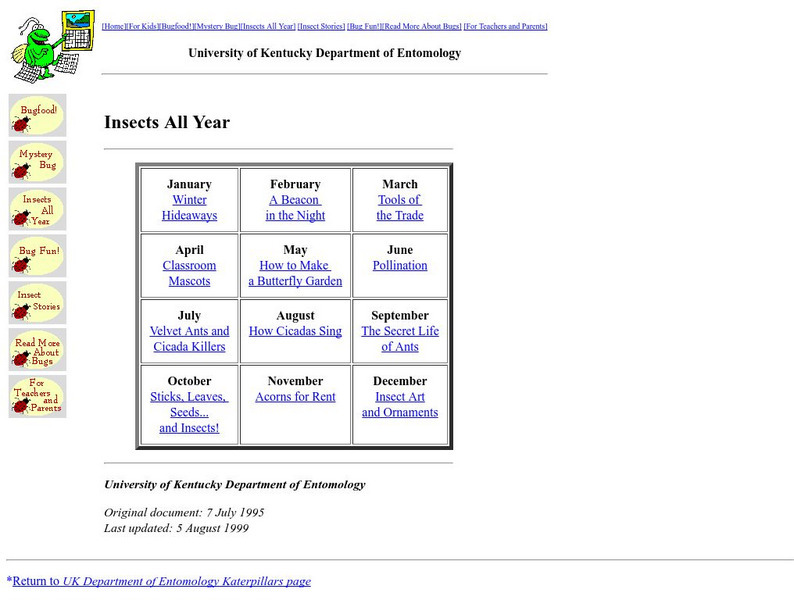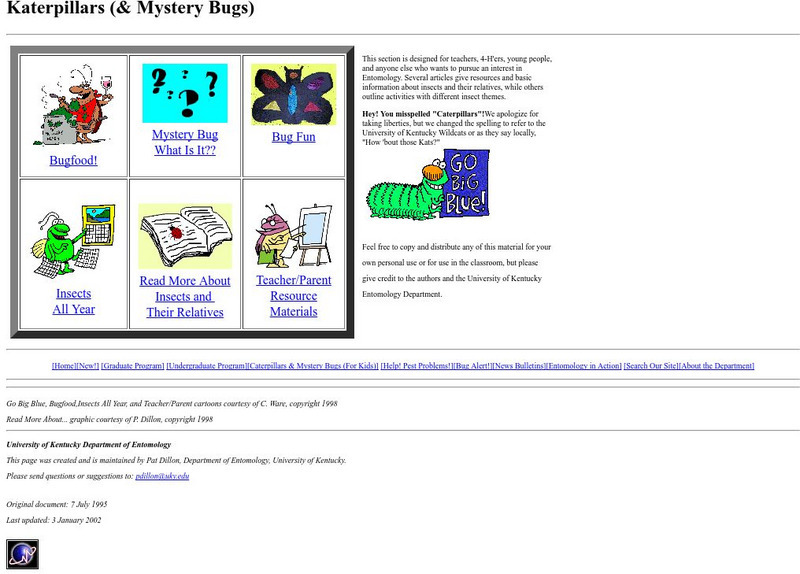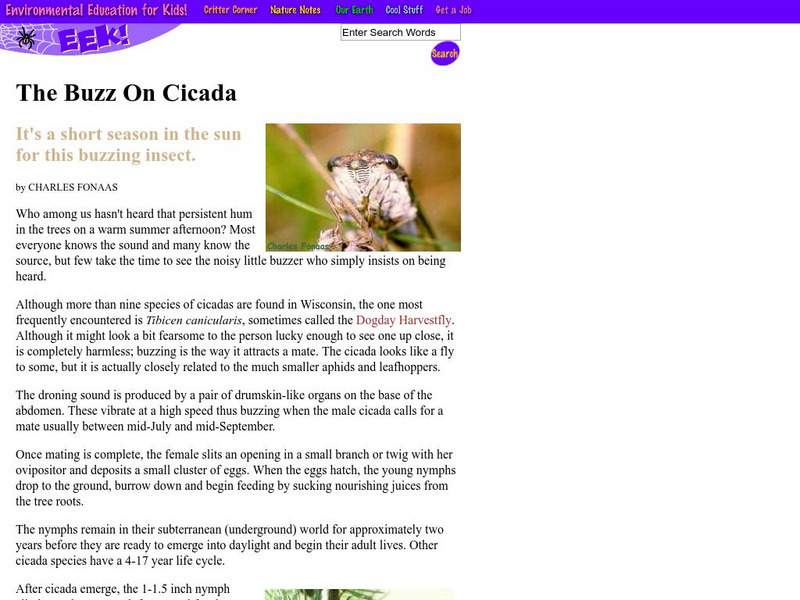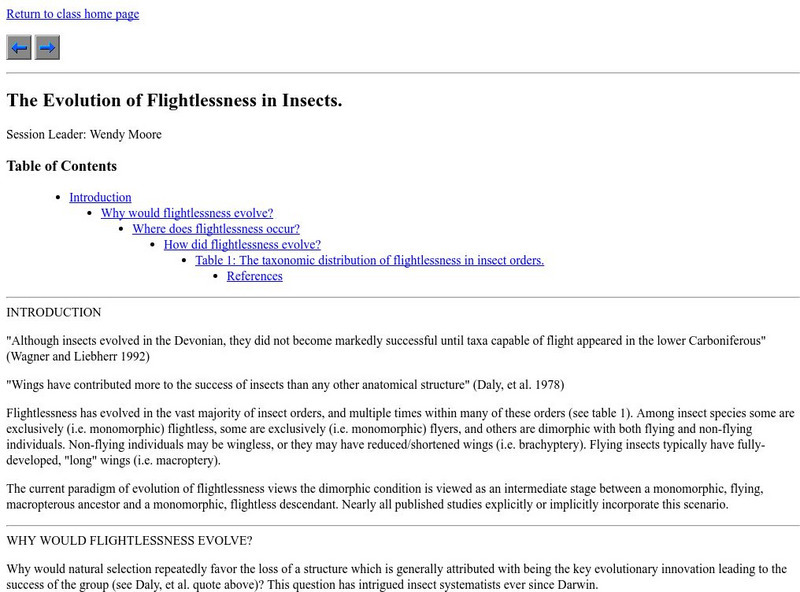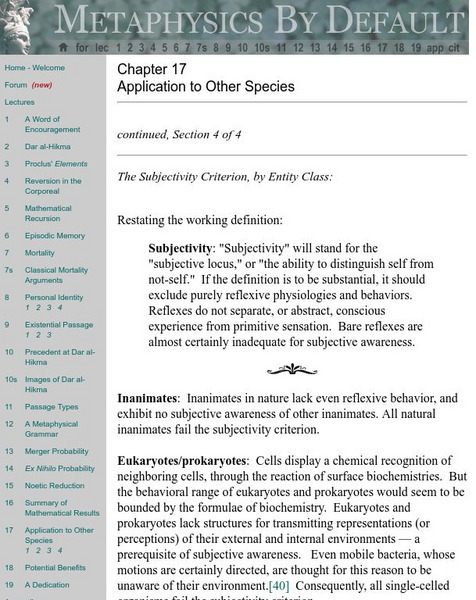A-Z Animals
A Z Animals: Animal Facts: Bumble Bee (Bombus)
Learn facts about Bumble Bees, including their habitat, diet, physical characteristics, and breeding.
Other
San Francisco Zoo: Honey Bees
Detailed information and fascinating facts about the honey bee include diet, habitat, physical features, behavior, and conservation status.
Canadian Museum of Nature
Canadian Museum of Nature: Grasshoppers
Grasshoppers are found all over the world. Some basic facts about these insects are found here along with some pictures.
University of Oxford (UK)
Oxford University Museum of Natural History: Insects
Flies, fleas, beetles and bees are all insects, and the study of insects is called entomology. Insects are probably the most important group of animals on earth - there may be as many as ten million different types of insect alive today!...
Rice University
Rice University: Eusocial Insects
This site, which is provided for by the Rice University, gives a description of the social aspects of the wasp colonies - division of labour.
University of Kentucky
University of Kentucky: Insects All Year
The University of Kentucky provides information and activities about insects for each month of the year. Projects include art and observational activities.
University of Kentucky
University of Kentucky: Get This Bug Off Me
This informative site distinguishes harmful from nonharmful insects. Pictures supplement the text.
University of Kentucky
University of Kentucky: Bug Fun
This fun site is designed for teachers who want to have interactive fun in the classroom. "Several articles give resources and basic information about insects and their relatives while others outline activities with different insect...
University of Kentucky
University of Kentucky: "Katerpillars" (& Mystery Bugs)
For younger students, these insect-themed activities, treats, and crafts also feature teacher resources and book references.
Science Museum of Minnesota
Science Museum of Minnesota: Journey North Cluster
An elementary resource to learn about butterflies and their migration with links to a wide variety of activities.
Environmental Education for Kids
Eek!: Cicada
This site provides a brief but concise description of this interesting insect. Grades 4-8.
Michigan Reach Out
Newton's Apple: Why Do Bees Sting?
Lesson plan that explains why bees sting, how bee societies are organized and an activity for students to learn how bees communicate using pheromones.
Michigan Reach Out
Reach Out: What Is an Insect
A thorough lesson plan site that explores the definition and characteristics of an insect. Contains several informative links. Suggests a number of hands on activities.
Ed Koday
Ivy Hall: Grasshopper
Hop to it! See several images and facts of grasshoppers. Click on the images for more information.
Ed Koday
Koday's Kids Amazing Insects: Housefly
Learn all about the housefly with this interesting fact page and pictures.
Ed Koday
Koday's Kids Amazing Insects: Assassin Bug
Learn all about assassin bugs with this interesting fact page and pictures.
PBS
Pbs Teachers:my Life as an Insect in Namib
Identify the harsh characteristics of the Namib Desert and determine the adaptations an insect in Namib Desert must have to survive.
PBS
Pbs Teachers: Jewel of the Earth
Collect and analyze organisms and use a dichotomous key to identify and classify the organisms. Research the evolutionary history of organisms.
University of Arizona
Wendy Moore/how Did Flightlessness Evolve?
Discusses the reasons flightlessness evolves in some insects depending on their location.
Other
Little Giraffes: Insects
Insect activities for early elementary students are pictured and described on this resource.
Other
Personal Site: The Virtual Insectary
This colorful site not only provides images of some common insects, but includes information on the foods which they eat as well as the habitats where they can be found.
Other
Catch the Science Bug: Insect Observation Investigation [Pdf]
Activity encourages kids to locate insects and record data about observations they make about insects that live in their area, then research the animal to find out new facts about it.
Other
Wayne Stewart/social Insects
Discussion of insects that show awareness of others of their own species although their behavior is highly regimented and instinctive.
Other
Hvpm: The Evolution of Flight
A description of the wings and compound eyes of insects and its components; also discusses the advantages and disadvantages of having compound eyes.




